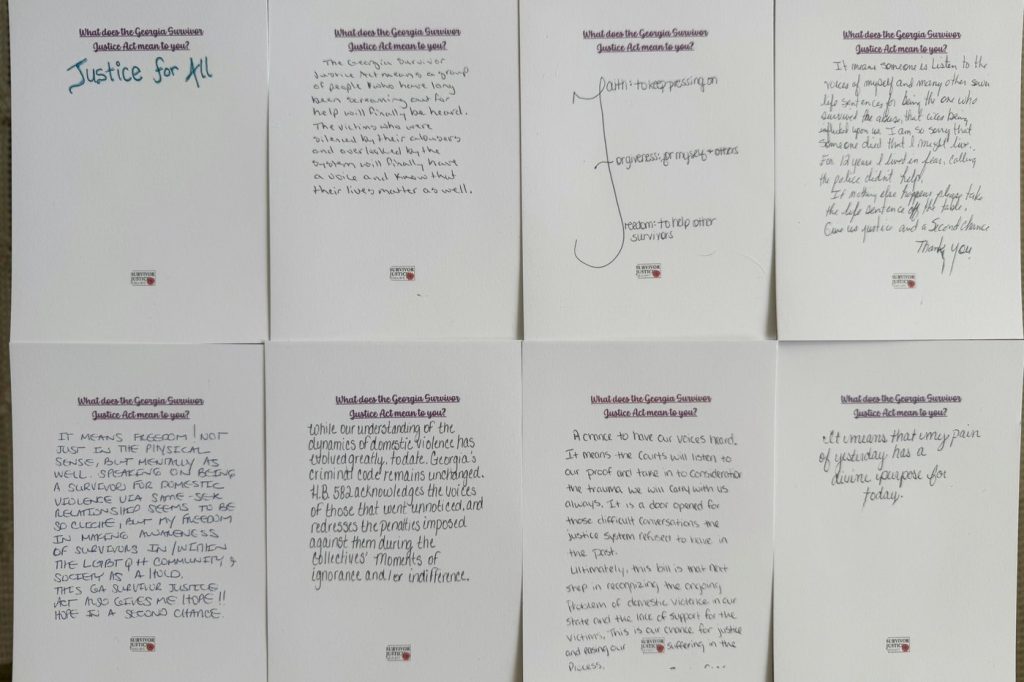In Atlanta, Mary Favors, who experienced years of domestic abuse from her husband, is now incarcerated for his murder. Despite being a victim, Mary has been haunted by her past, enduring nightmares from days filled with violence and intimidation.
Troy Favors, her husband, was a repeat abuser, having been convicted five times for his violent behavior toward her. The situation escalated in April 2011 when an altercation led Mary to lock herself in their bedroom, fearing for her life. Armed with a knife for protection, Mary claims that Troy attacked her, resulting in his accidental stabbing. Prosecutors, however, accused her of murder, leading to her plea of guilty to voluntary manslaughter and additional charges, ultimately resulting in a 20-year prison sentence.
According to the Georgia Coalition Against Domestic Violence, between 74% and 95% of women in prison have a history of domestic abuse or sexual violence. Many of these women lack adequate legal representation and opportunities to present evidence relating to their experiences, often being criminalized for acts committed under severe duress. This dynamic disproportionately affects women of color, such as Mary, increasing their likelihood of incarceration.
The recent introduction of the Georgia Survivor Justice Act aims to reform the judicial approach to cases involving abuse survivors. This bipartisan legislation seeks to allow judges to resentence individuals incarcerated for crimes linked to domestic violence, potentially leading to reduced sentences for many defendants. It would also broaden the scope of evidence that can be presented in court, acknowledging the complexities involved in cases of domestic abuse.
Currently, the law in Georgia restricts how domestic abuse evidence can be introduced in court. Advocates, including Ellie Williams, the legal director at the Georgia Coalition Against Domestic Violence, argue that these guidelines do not accurately reflect the realities of abuse and often result in unjust outcomes for survivors like Mary Favors.
If passed, the new bill would require judges to impose sentences between 10 to 30 years for certain violent crimes linked to domestic abuse, ensuring that sentences do not exceed half of the potential maximum for other felonies. Additionally, this legislation would facilitate the possibility of resentencing for inmates already serving time.
Despite the legislative efforts, there remains opposition from some district attorneys, concerned about the implications of shortening sentences for individuals convicted of violent crimes. The discussions surrounding this legislation indicate a growing recognition of the need for reform in how the legal system addresses the intersection between victimization and criminal behavior.
In recent years, other states, such as New York and California, have enacted laws that allow for the reevaluation of sentences for abuse survivors. While these efforts have enabled some individuals to receive reduced sentences, challenges remain, particularly regarding laws that disproportionately punish women for not protecting their children from abusers.
Regardless of her incarceration, Mary Favors remains determined to turn her life around. Having earned her high school diploma in prison and participated in programs focusing on abuse, she aspires to work at a battered women's shelter after her release. Through her faith and involvement in prison ministry, she reflects on her past and the love she still holds for her late husband, expressing a longing for the resources that could have helped them both navigate their struggles with mental health and addiction.
Mary's story exemplifies the complexities surrounding domestic violence, self-defense, and the legal system. Advocates continue to push for systemic changes that recognize the trauma many abused women endure and emphasize the need for compassionate approaches to legal accountability.










